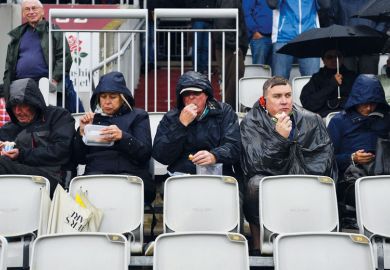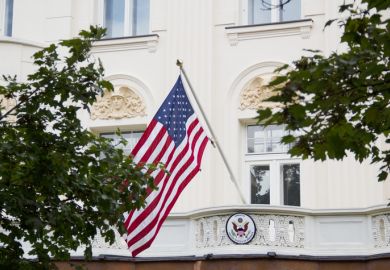Australia’s “preprints debacle” has been resolved, with about 30 researchers winning appeals against the jettisoning of their funding applications over breaches of an ill-conceived and little understood rule.
But the episode has left a mark, as academics and university research offices confront a logjam of delayed grant schemes on the eve of the summer holidays.
The Australian Research Council (ARC) appeals committee has found in favour of all 32 physics researchers whose funding applications had been ruled invalid because they included references to preprint publications – standard behaviour in physics that fell foul of a little-noticed ban introduced early last year.
The committee upheld appeals by 28 applicants and extended its ruling to four others who had not submitted appeals. The group included six researchers whose projects had been ranked highly enough to attract funding.
These projects will now proceed, having received ministerial approval for funding. The ARC said it had enough money in reserve to bankroll the combined A$2.9 million (£1.5 million) cost.
The grants include a A$727,000 Future Fellowship for UNSW Sydney astronomer Caroline Foster to investigate how galaxies form and evolve. Five researchers from Griffith, Macquarie, Swinburne and Sydney universities will also receive Discovery Early Career Researcher Awards (Decra) grants to investigate dark matter, the origin of gravitational waves, quantum acoustic technology, the quantum internet and fast radio bursts from other galaxies.
The remaining appellants, whose projects were not ranked highly enough for funding, will now be allowed to reapply.
“So it seems I’m going to hang around…for a little while longer,” tweeted Macquarie University research fellow Mikolaj Schmidt, one of the five Decra recipients. “Huge thanks to my brilliant support network of family, colleagues and mentors.”
Australian Institute of Physics president Sven Rogge said he was “thrilled” with the result of the appeals process. “These newly announced fellowships will change the career paths of fantastic upcoming scientists,” he said.
“This outcome is the result of the strong response of the sector, ranging from vocal individuals to the joint stand of the professional bodies. It is very late, but it is fair.”
Professor Rogge said he expected the ARC to apply “the same framework” to pending rounds of research grants. “These need to be announced as soon as possible to provide certainty to the researchers involved.”
Greens education spokeswoman Mehreen Faruqi said thousands of researchers were awaiting the outcomes of applications under the Linkage Projects and Discovery Projects schemes.
Dr Faruqi said Linkage Projects applicants had expected to learn whether they had been successful in October, while Discovery Projects outcomes had been due by about now. “Both of these schemes were impacted by the now-rescinded preprint rule, as applications had closed before the rule was abolished.
“There would be dozens of researchers anxiously waiting to see whether their applications were deemed ineligible due to citing preprints.”
In a letter to ARC chief executive Sue Thomas, Dr Faruqi urged the council to outline when the results would be revealed and “to implement funding processes that contain specific dates and timelines. The outcome of a grant application has enormous impacts for a researcher’s job security, mental health and ability to make life plans.”
Register to continue
Why register?
- Registration is free and only takes a moment
- Once registered, you can read 3 articles a month
- Sign up for our newsletter
Subscribe
Or subscribe for unlimited access to:
- Unlimited access to news, views, insights & reviews
- Digital editions
- Digital access to THE’s university and college rankings analysis
Already registered or a current subscriber?











